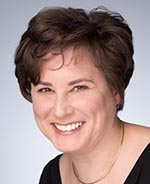AOSW Connections
Editorial Team
Editor-in-Chief
Amy Colver, MSSA, MA, LISW
AOSW Communications Director
Jeanice Hansen, LCSW, OSW-C
Managing Editor
Patricia Sullivan
Contribute Today!
To submit a story or information for inclusion in a future issue of AOSW Newsletter, contact Amy Colver or Melody Griffith on the list above.
August 2022
Volume 2 | Issue 3
President's Message
Making Space for Partnerships: Direct Practice, Research and Advocacy
The Association of Oncology Social Work (AOSW) recently convened for our first in-person conference since 2019. This thrilling event took place June 15-17 in Raleigh, North Carolina, just days after the American Society of Clinical Oncology (ASCO) held its in-person return in Chicago. In Raleigh, there were many happy reunions, many new faces, and time for reflection about the challenges and changes we have endured through these past two years of global pandemic.
AOSW Conference
That’s a Wrap: AOSW’s 38th Annual Conference in Raleigh
It seems fitting to have held our first in-person conference since 2019 in the state that claims to be “First in Flight.” With vaccination cards in hand and masks on faces, many of our 300+ attendees, presenters and exhibitors boarded flights for the first time since the pandemic started, destined for the Raleigh Convention Center in the bustling downtown area of Raleigh, North Carolina. As attendees arrived at the Marriott hotel, the excitement was palpable as joyful reunions and warm welcomes unfolded.
Editor's Message
A Message from the Editors
Welcome to the next issue of AOSW Connections! We hope that you all are having a rejuvenating summer. It’s hard to believe it's already August. That means that conference is already weeks in the rearview mirror. For those that were able to attend, we hope that you are still feeling the positive, infectious energy that can come from conference – just in simply being with and learning from others that share a passion for the field of psychosocial oncology!
General
Oncology Social Work Practice in the Genomic Era: Using What is Already in Our Toolbox
The sequencing of the human genome fundamentally shifted the ways we consider health and disease. These scientific advances led to the emergence of a new class of cancer patients: healthy individuals with identifiable genetic variants linked to increased lifetime cancer risk (called pathogenic variants or mutations) but without the certainty regarding the timing, severity and course of a diagnosis. Today, the capacity to identify such pathogenic variants still outpaces the development of tools to prevent or cure the cancers they predict. Expanded availability of testing for heritable cancer risk, and the increasingly nuanced interpretation of such tests, present novel challenges for individuals, families and communities impacted by cancer. Some of these challenges may include consideration of risk management, family formation, the distress of anticipating change and loss, and chronic grief.
Staff News
 AOSW is happy to welcome a new member of our headquarters staff, Kate Monkus. Kate joined the AOSW in late June and is already diving into operations, membership and all things AOSW.
AOSW is happy to welcome a new member of our headquarters staff, Kate Monkus. Kate joined the AOSW in late June and is already diving into operations, membership and all things AOSW.
Monkus has spent a lifetime working with non-profit organizations from community theater to international service clubs. During her career, Kate has held positions at the Texas Committee for the Humanities, Rotary International, and the American Red Cross.
Resources
Psychosocial Support for Patients with Genetic Predisposition to Cancer
For Joan, learning she had a second cancer wasn’t as devastating as hearing from her genetic counselor that, because of her genetic profile, she was at an increased risk for developing breast, colon and pancreatic cancer. Now she was not only facing active treatment for one cancer, but surveillance for a second cancer and grappling with what steps to take to protect herself as best she can from future cancer diagnoses. The psychological landscape in her situation had dramatically shifted. Though she’d previously had the sense that her cancer experience ‘may never be over,’ this sense now descended on her in a new, pervasive and profound way.
